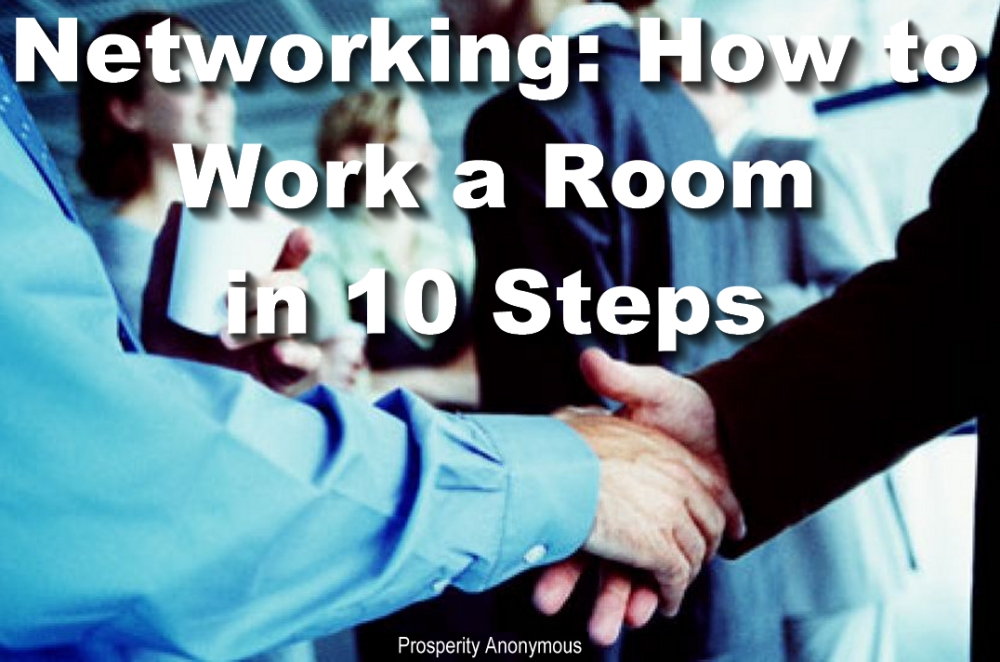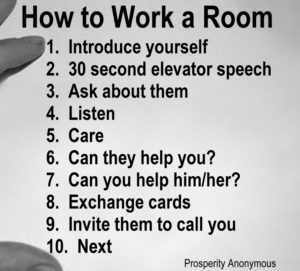When people have been exposed to you and you have had the ability to interact with them, what do they do when you leave the room?
While people will make a decision regarding you in as little as 10 seconds, are there ways to influence what they think of you in a good way, given a few more moments? It’s up to you.
Wouldn’t it be nice, if after you left they said good things about you, or at least mentioned that you seemed to be different, insightful or inspirational, or maybe you made people think outside the box, if only for a moment? That’s what happens when you make an impact in public.
You’re not drawing attention to yourself, or demanding anyone’s attention but you’re giving the most you can in the few moments of exposure you have with people who may not know who you are or what you do and making a good first impression.
What Turns Them On?
Find out what excites them and ask them about it. Listen to them and ask questions. If that’s all you do, you will make an impact. If you like, you can work in a little networking if you can think of a story that relates what you do or might like to say in a way that relates to what turn them on.
Edify Others
When someone does a good job or earns some type of accolade, don’t miss an opportunity to edify them, introduce them to others or thank them publicly, honoring their efforts. If you are seen as someone who appreciates the efforts of others and takes the time to honor them and have their moment in the sun, you will be revered as an edifier or cheerleader.
Whenever you hear of someone’s good deeds, by all means, find ways to recognize them and lift them up for doing good, or helping to make the world a better place. This will have a meaningful impact on the person you’ve edified, as well as the people who will appreciate your efforts to acknowledge and honor someone’s good deed.
Tell Stories
One of the best things you do is to be a story teller. Story tellers don’t just spill out the facts all over their audience. No. They tell stories with dramatic detail that sparks the imagination of their audience. With a little practice, you too can become a story teller. Think of colorful ways you can spice up what you have to say and hone your skill of storytelling to make an impact.
Be Creative
You can learn all the skills about how to work a room, and do the best you can, but don’t be afraid to try something new, that may benefit the people you meet, yet leave a positive lasting impression. Especially if you’re sharing the space with peer who may also be trying to make an impact, you need to think about how you can still make a positive impact in a way that sets you apart from the other people who might be working the room.
Put On a Show
You’ve seen people who garner the attention of a room by putting on a show of sorts, multiplying their networking efforts by turning their interaction with one person (or a few people) into a spectacle that causes others in the room to break from the conversation and look to see what’s happening over there. While this kind of theatrics might require a certain level of self-confidence, with a little practice, you might think of ways you could turn an impromptu demonstration into a method of getting people to wonder who you are and what you are doing.
Make Things Happen
Think about accepting opportunities, or volunteering, to take an active role in putting something together, like a group function or event. If the even or function is a success, then you will be recognized as the go-getter who gets things done and makes things happen. This is excellent public relations (PR) for which you can humbly accept the praise for a job well done on the behalf of others. This will definitely make an impact and you will be remembered for your efforts.
Dress Appropriately
Looking good and fashion appropriate for any event can help gain the approval of others when you walk in the door while schmoozing with the folks at any event. Try not to over-dress for the event because you don’t want to appear to be snooty. And even though under-dressing might make you stand out, the effect might not be what you’re looking for, and it can make it harder for you to gain the confidence of your audience if you’re inappropriately attired.
After all, ZZ Top said it best,
Every girl’s crazy for a sharp-dressed man.
Who Do You Know?
Think about who you know, how have they made an impact on your life? Think about emulating the techniques used by the people whom you respect. You don’t have to parrot their persona or hypnotize yourself to act like that person. Simply note how they interact with other people and see if you ca add some of those attributes into your character.
You Are One-of-a-Kind
There’s no one else on this planet who is just like you, so celebrate your unique characteristics and maybe think of a way to let your individuality shine through without overshadowing others. People will love you if you can come across as a real person who is authentically unique and self-confident with humility and grace, always leaving a good impression and making an impact.


